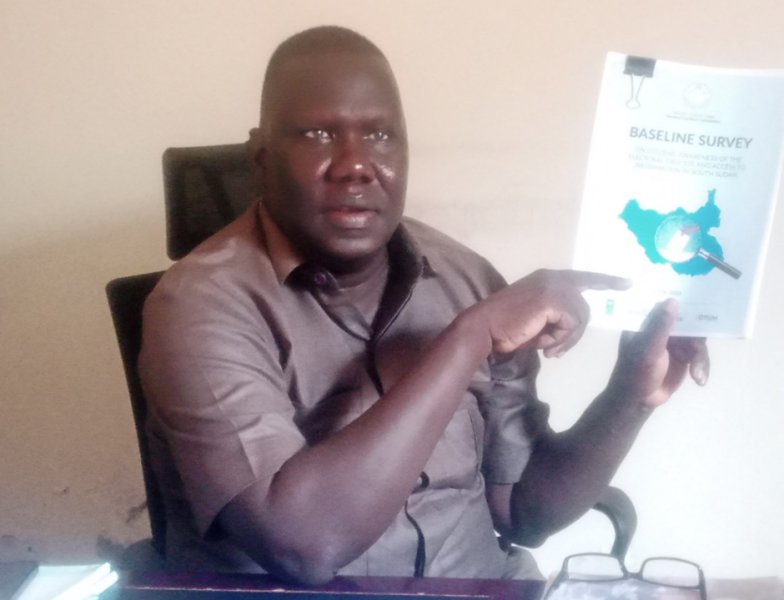
The National Elections Commission (NEC) is sounding alarm over rapidly diminishing time available to prepare for South Sudan’s anticipated 2026 general elections, warning that urgent legal and political decisions must be finalized by the end of August to avoid delays.
Speaking during a high-level stakeholders’ meeting in Juba on Thursday, NEC Secretary General Gabriel Bol Deng cautioned that the country is quickly running out of time.
“Time is like our currency in the bank—we are running out of it,” Deng told attendees. “If key legal and political decisions are not finalized by the end of August, there won’t be enough time to conduct elections without amending the National Elections Act.”
With less than 16 months remaining until the scheduled vote, Deng emphasized the need for swift action across multiple fronts, particularly in reaching critical political agreements and enacting necessary legal frameworks
“We met this morning (Tuesday) at 8:00 am and tried to squeeze the electoral calendar. What we found is that by August, if some of those key decisions are not made it will be impossible to hold the elections on time without legal amendments,” he explained.
Deng also called on all stakeholders including the media, civil society organizations, and political parties, to intensify their roles in preparing the country for elections.
“We must start beating the drum for elections. Everyone media, civil society, political parties have a role to play,” he said.
The NEC is expected to brief commissioners and other stakeholders on the urgency of the timeline later this week, with the hope of triggering a coordinated national response.
Last week, the Civil Society activist Edmund Yakani reminded the government of the months left for election and called on the parliament to act urgently to address persistent challenges.
These include delayed funding for the National Elections Commission, a lack of a clear security framework, and limited civic space.
“The release of funds to the elections body must be timely and adequate,” Yakani said. “Security plans must protect electoral institutions, officials, voters, and candidates. And civic and political space must be open and unrestricted.”
The activist also called for amendments to the electoral law, proposing the use of the 2010 constituency map due to widespread displacement caused by conflict. He warned that failure to do so risks excluding affected communities from representation.
“We must not let displacement silence the voice of any community,” he said, adding that a clear and inclusive security plan from the presidency would be critical to ensuring a credible vote.
Since gaining independence in 2011, South Sudan has faced numerous challenges on its journey toward democratic elections.
The 2018 Revitalized Peace Agreement mandated that elections be held after the transitional period, which has now been extended to December 2026.
However, ongoing political instability, inadequate infrastructure, and limited resources continue to pose significant obstacles to the success of this election.

